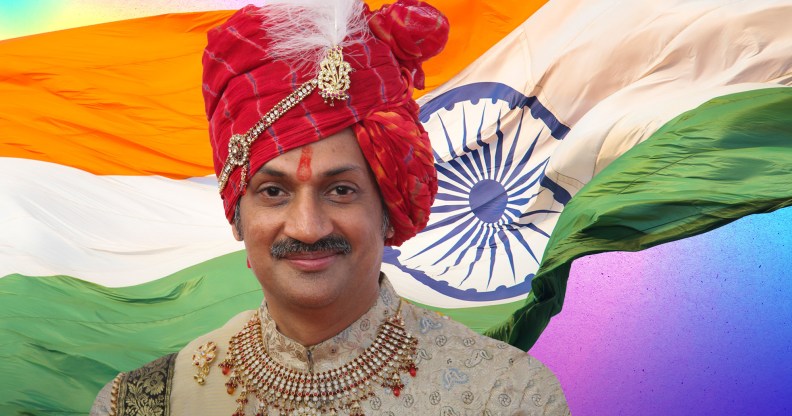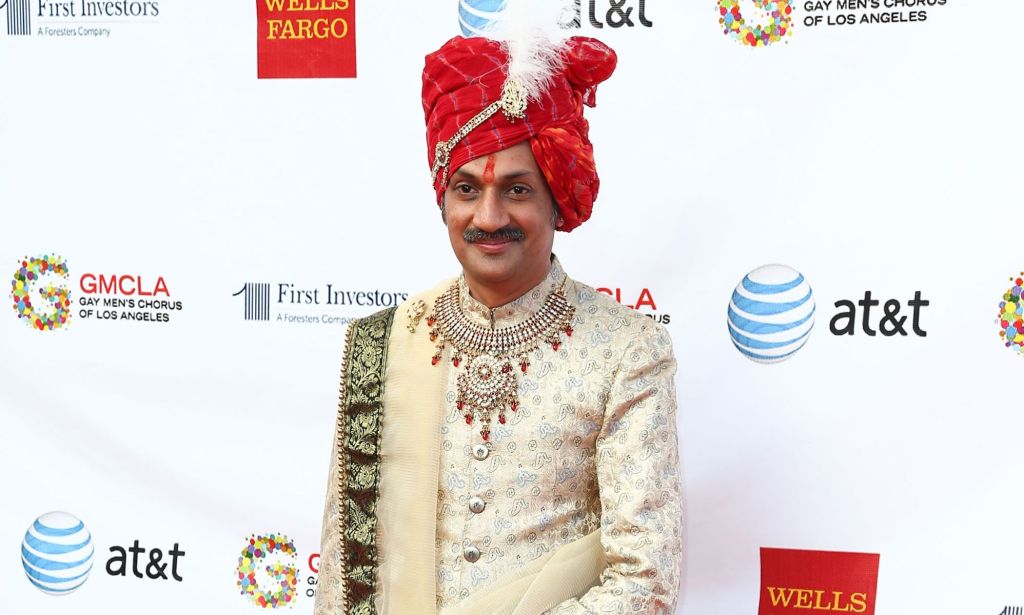Gay Indian prince on surviving conversion therapy: ‘My parents wanted to operate on my brain’

Prince Manvendra Singh Gohil. (Getty)
Prince Manvendra Singh Gohil. (Getty)
Indian royals Prince Manvendra Singh Gohil and Amar Singh are at the forefront of the fight to ban conversion therapy.
When Prince Manvendra came out publicly as gay in 2006, at the age of 41, reactions were polarising. Many praised him for having the courage to live his life openly. Others targeted him with death threats, locals in his home town burnt his effigy and there were protests.
His parents, the Maharaja and Maharani of Rajpipla, in Gujarat, responded with similar hostility. They publicly disowned him and took out advertisements in newspapers, announcing that he had been cut off as their heir due to his involvement in activities “unsuitable to society”.
Four years earlier, when he revealed his sexuality to his parents privately, they had subjected him to conversion therapy.
Prince Manvendra endured electroshock treatments and his mother and father even considered brain surgery in an attempt to make him straight.
“When I came out to my parents, the first thing they did was to consult a psychiatrist, psychologist – not just in India – and [one of the] things which they thought would convert me was electroshock therapy,” he tells PinkNews.
“The second option they thought about was that my brain should be opened. They were trying to tell doctors to operate on my brain.
“Just imagine if that could have happened. I’m fortunate it didn’t.”

The prince and his parents have since reconciled, but his experiences bolster his determination to fight so others in India can be protected against similar terrors.
Conversion ‘therapy’ has been discredited by several major medical and psychological associations, and has been likened to torture by a UN expert.
Some methods of conversion treatment include the use of pseudoscientific procedures, so-called counselling sessions, religious interventions, exorcisms and electric shocks.
Several places around the world have banned the practice, including one region in India. In 2021, Tamil Nadu became the first Indian state to outlaw conversion therapy after an unprecedented judgment by the Madras High Court.
However, the practice still remains legal across large swathes of India, where homosexuality was illegal until 2018, and stigma against the LGBTQ+ community still exists.
It’s something that both Prince Manvendra and Amar Singh, an art dealer, activist and member of India’s Kapurthala royal family, have fought for years to change.
Amar Singh is funding a Supreme Court case against conversion therapy
Singh spent a large part of his COVID-19 lockdown contacting lawyers and building a Supreme Court case to ban conversion therapy. He spoke to leading human rights organisations, LGBTQ+ advocates and queer people about the horrors of the procedure to bolster the argument, and is funding the case.
Singh says India’s back-and-forths on LGBTQ+ rights have sent a message “of fear”.
Homosexuality was illegal in India under Section 377, a colonial-era draconian law, with a possible life sentence for anyone convicted of “carnal intercourse against the order of nature”.
After a fraught legal battle for equality, India overturned the legislation in 2009.
Homosexuality was re-criminalised in 2013, but in September 2018, India’s Supreme Court finally struck down the part of Section 377 which affected LGBTQ+ people.
Singh says: “Yes, it was again legalised in 2018, but there were many people who remember that reinstatement of criminality so that’s why my case and Manvendra’s case to abolish LGBT conversion therapy has taken about three years.
“Thousands of people we’ve spoken to have been living in fear, and abolishing LGBT conversion therapy will really be a shining light to the rest of the world.”
Singh is clear that a conversion therapy ban must be trans-inclusive. In the UK, former prime minister Boris Johnson was condemned for dropped trans protections from a proposed ban. This was later reversed by current PM Rishi Sunak, though the long-promised ban has still not materialised.
Singh says excluding trans people would “be a disaster”, especially as India has “some of the highest death rates for the trans community in the entire world”.
He believes the case is an “emergency” because it is also a children’s rights case – young people are being forced into “.
“They’re going through electroshock therapy. They’re being beaten, and it’s [conversion therapy] got to be abolished,”
He adds: “We will win. I’ve been told that we should win by the summer. Imagine how beautiful that would be. Imagine we could win it in time for Pride.”
Prince Manvendra thinks that India taking the lead to make “policies which are favourable to us”, including trans people, will definitely have an impact on other parts of the world.
He’s appeared on The Oprah Winfrey Show, popped into the meet the Kardashians and travelled to other countries to talk to political leaders as well as advocates. And wherever he has been, Prince Manvendra’s message has been clear: “Please help us give freedom.”
He says: “This freedom is not just restricted to India – this is a global issue. There is homophobia, hypocrisy, transphobia, bigotry happening all over the world.
“There is a Sanskrit saying, which I often use: ‘Vasudhaiva Kutumbakam’, which means ‘The whole world is one family.’
“We need to come together as one family to bring about equality and acceptance for the community, otherwise this is not going to happen.”

